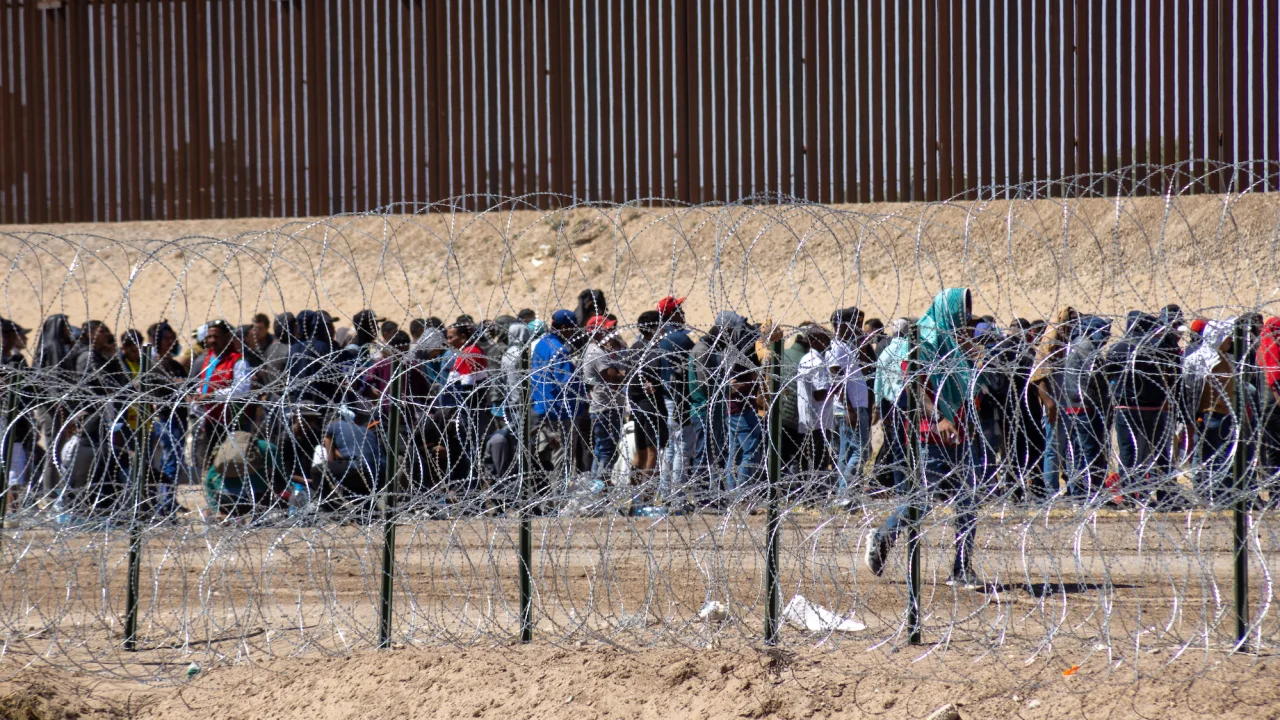By Jonathan Kindberg, C4SO’s Diaspora Mobilizer
Title 42 is a Trump-era rule that used the pandemic emergency to limit asylum seekers’ ability to apply for asylum in the United States at the U.S./Mexico border. With the ending of the government’s Covid Emergency Declaration last week, this rule is no longer in effect. You may have seen the news reports, but it’s hard to understand what is actually going on. Let me give a quick summary.
In theory, it should be easier to apply for asylum now and for the merits of a case to be heard, as was the case before the pandemic. Unfortunately, in reality, it is now more difficult, more complicated and more confusing. The rules for who can seek asylum in the U.S. now fall under something called Title 8 and a new group of rules put in place just as Title 42 was ending. These new rules require, among other things, that immigrants first apply and be denied asylum in a third country before doing so in the U.S.
These changes have led to growing frustration and desperation for those on the border who have been waiting months or years for Title 42 to end. Now they aren’t sure if they’ll be eligible. Many people have fled situations of violence or political unrest only to get stuck in dangerous conditions in Mexico, awaiting the possibility of applying for asylum in the U.S.
As Christians, How Should We Think About These Changes?
People moving and crossing borders is nothing new. The term diaspora is a sociological and theological term that encompasses many different kinds of people on the move, including international students, immigrants, refugees and asylum seekers. In the New Testament, it is used in 1 Peter 1:1 and James 1:1 to describe Christians who lived as immigrants in foreign lands. Ephesians 2:19-22 reminds us that we were once all foreigners without access to God’s kingdom, but that through Christ, we have been given welcome and divine asylum into his family. Our very identity as Christians is that of being a people of a different kingdom and country. Furthermore, we see a repeated Biblical imperative of welcome in passages such as Matthew 25 and Hebrews 13:2. This should inform how we think and respond.
How Can We Respond?
- Advocate and pray for a comprehensive and just overhaul of the nation’s immigration laws to reflect principles of justice and compassion. Title 42 is but a symptom of a larger and deeper problem. See, for example, the Evangelical Immigration Table’s proposal which is supported by a wide range of Christian leaders.
- Practice Biblical hospitality. Most asylum seekers who are admitted to the U.S. have a family member or sponsor somewhere in the country. It’s likely that some are arriving, as you read this, in your city. Cities far from the border, like Chicago, are seeing large numbers of arrivals. Reach out to local shelters, such as those run by Catholic Charities, and see what they need.
- Financially support organizations on the border such as Abara in El Paso and Universidad Popular in San Diego.
- Check in with immigrant pastors in your city. They often are the best equipped, though often less resourced, to welcome new arrivals.
- Consider partnering with C4SO’s Diaspora Network ministry and attending our summer conference, “Mutuality in Mission / Juntos en Misión: Receiving One Another’s Gifts.”
Diaspora Network Conference: “Mutuality in Mission / Juntos en Misión”
July 28-29, 2023
Austin, TX
Register now.
 The Rev. Jonathan Kindberg is resident clergy and a mission partner at Church of the Cross Austin, helping the church grow in their cross-cultural and community engagement in Northeast Austin. Jonathan has extensive experience in cross-cultural ministry in the United States and beyond. He has been instrumental in various initiatives of the Anglican Church in North America related to engagement with the Latino community and church throughout North America. Jonathan is serving in Austin with a non-profit to connect churches to refugees and immigrants. He mobilizes C4SO’s Diaspora Network to support immigrant churches in our diocese.
The Rev. Jonathan Kindberg is resident clergy and a mission partner at Church of the Cross Austin, helping the church grow in their cross-cultural and community engagement in Northeast Austin. Jonathan has extensive experience in cross-cultural ministry in the United States and beyond. He has been instrumental in various initiatives of the Anglican Church in North America related to engagement with the Latino community and church throughout North America. Jonathan is serving in Austin with a non-profit to connect churches to refugees and immigrants. He mobilizes C4SO’s Diaspora Network to support immigrant churches in our diocese.
Image credit: CNN.com


